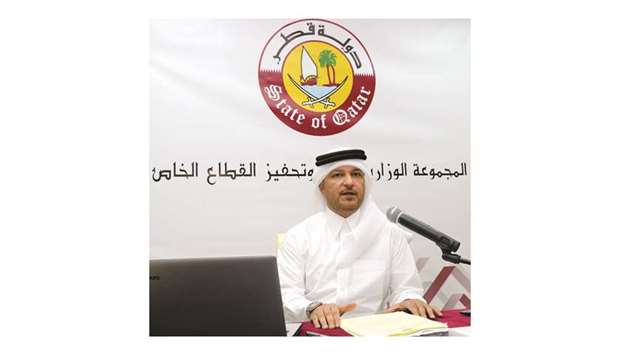Khamis al-Muhannadi, the chairman of the Technical Committee for the Encouragement and Participation of the Private Sector in the Economic Development Projects, said these projects, valued at QR26bn, are in the fields of food security, education, health, logistics, industry, and construction.
“The diversification of the economy means reducing dependence on oil and gas activities and increasing the role of the private sector in economic development projects by creating an appropriate and encouraging environment and attracting technology for local investment,” al-Muhannadi told reporters in a press conference held on Sunday at the QNA headquarters. Al-Muhannadi said HE the Prime Minister and Interior Minister Sheikh Abdullah bin Nasser bin Khalifa al-Thani has approved the increase of farmers’ support for the next five-years. Citing government figures, al-Muhannadi said sales of Qatari products increased by 300% in Q1 of 2018.
In food security, al-Muhannadi said a QR50mn fish farming project that aims to achieve 80% self-sufficiency is set to start production by Q1 2019 and is expected to reach full production capacity by Q3 next year. Two other future projects are expected to achieve 100% self-sufficiency, he continued.
Also, a QR50mn shrimp farming project is expected to start production by Q3 2019 and aims to cover 90% of Qatar’s shrimp consumption. For the QR125mn dry green fodder, al-Muhannadi said the project was completed and has reached 65% self-sufficiency. Two more projects for concentrated feeds will be launched in Q3 2018, he said.
Al-Muhannadi said am QR800mn greenhouse project aims to increase self-sufficiency in fruits and vegetables from 22% to 52%. A QR200mn marketing strategy for agricultural products is being studied with the aim to market local agricultural products, increase farmers’ interest in product quality, provide needs of farmers, and use surplus products by canning, recycling, and freezing.
In dairy products, al-Muhannadi said four Qatari companies are working to increase production of dairy products to cover the needs of the local market.
In education, al-Muhannadi said local investors can participate in a QR750mn private school project that can accommodate 11,000 students. The government is also seeking local investments in a QR2.4bn private hospitals project with a capacity of 220 beds.
For logistics, local investors could participate in the QR1.5bn permanent workers’ housing project, and another project worth QR3.1bn that can take in 75,000 to 110,000 workers. Also, 1,781 plots for several logistics areas have already been distributed, according to al-Muhannadi.
Similar projects in this field include a QR2.8bn project for low cost stores, QR400mn forest market project, and QR300mn central markets project, he continued. In construction, the QR300mn building waste recycling project aims to provide building materials at competitive prices and minimising imports, as well as disposal of accumulated construction waste. A project related to medical and electronics waste is slated in the second quarter of the year.
The government is also offering opportunities in the QR2.5bn expansion of small and medium-sized industries, which will provide 150 industrial plots to be allocated to primary industries. The expansion of the project will be completed in Q1 2019, al-Muhannadi said. Also in the industrial field, the government aims to solve issues of distressed factories and increase the rate of operations and production.
From 268 factories, the country witnessed an increase of 65 productive factories since the economic blockade in June 2017, al-Muhannadi said.
He said HE the Prime Minister issued directives for a one-year delay of rental value of some SME factories and six-month postponement of loans of some productive factories that were affected and could be affected by the blockade.


